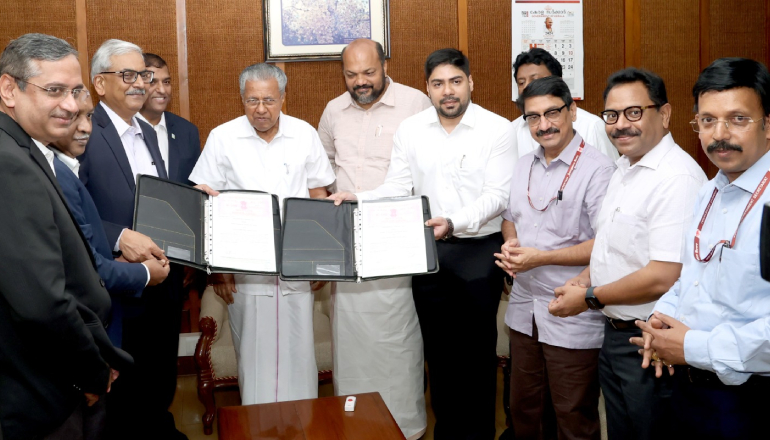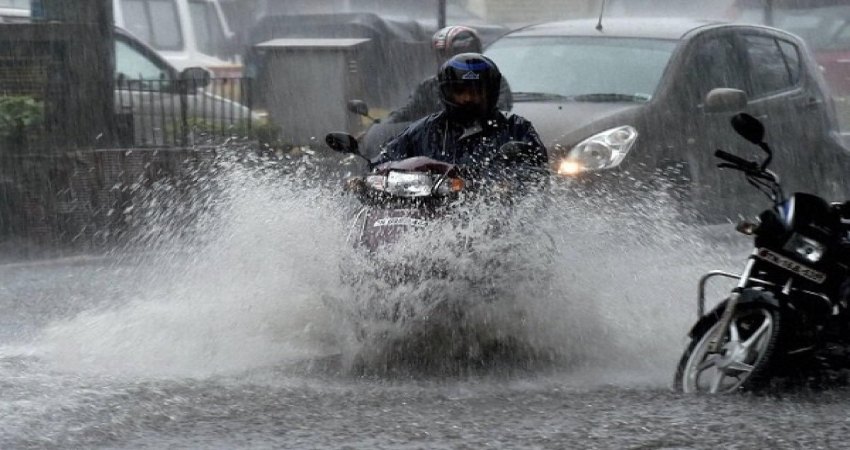There are a lot of lessons to be learned from Bengaluru-India’s IT capital, which is reeling under a severe water crisis.
Crisis: the word is no longer a word that is used rarely but a word that is used very frequently with prefixes. Climate crisis, food crisis, supply crisis, etc. Here I am using it with one of the key elements: WATER CRISIS.
Ironically, the city was submerged under water due to heavy rainfall just a couple of months back. The hardships faced by people, coupled with the loss of lives and other damages, served as a grim reminder to the government, state, and municipal corporations, as well as the citizens, to prepare for uncertainties. The city was crawling back to normal when another disaster, in the form of a water crisis hit. Once again, the government, well-intentioned NGOs, and citizens were caught napping. The blame game continues.
The situation is equally bleak in neighboring Kerala, which receives rainfall for about nine months. The story is not different across many parts of the country.
I am afraid to say the situation may not be too different next year. With 18% of the world’s population, India is among the most water-stressed countries, with only 4% of its water resources. The country’s dependence on monsoons and climate change is exacerbated by increased floods and droughts.
Acute callousness, apathy, corruption, and unaccountability are breeding indifference among the babus, the NGOs, and the aam aadmi who is so used to inconvenience that he does not even fight for his fundamental right–one as basic as water!
The reasons are multiple: depleting water scale, overdependence on existing water sources, controlling leakages, wastage, inefficiency in maintaining the infrastructure, excessive reliance on groundwater, restricted pipeline access, poor lake maintenance, underuse of water treatment facilities, drying borewells, legacy infrastructure, and a lack of alternates, etc.
To give you an example, once, every year, the municipal corporation–the local body responsible for supplying potable water to the citizens, issues tenders to repair water pipelines and align infrastructure to registered vendors. Once the tender is granted, the work is hardly ever monitored. How will the vendor become accountable? Many media reports also allege that corrupt babus often grant tenders to blacklisted vendors, or issue tenders for works that are in progress or have been already completed.
This lack of vigilance and, therefore, unaccountability, pours ink over several laws and policies that are passed and implemented to improve the ground situation.
Regular maintenance and monitoring can plug leakages and pilferages and thus improve water supply. Rationalizing irrigation, and restricting water use for construction are the needs of the hour. Intensive irrigation and fast-paced construction are also depleting the scarce resource.
Here is a highlight:
Intensive irrigation can lead to a rise in the water table, siphoning salt into the soil and the roots of plants, affecting their growth. As well, the overuse of groundwater can combine with climate-change-induced sea-level rise to cause saltwater to penetrate coastal groundwater aquifers, as per UNEP.
According to another report by the World Wildlife Fund, over half of the world’s wetlands have disappeared due to agriculture’s water consumption and inefficiencies, while climate change alters weather and water patterns, causing droughts and floods.
Water consumed in the pre-construction stage is generally sourced from groundwater leading to further water scarcity. For every 1 Sq Mt. of wall construction, an average of 350 liters of water gets consumed, observed authors of a report in Wienerberger.
The silver lining:
But all is not lost. India’s fast-urbanizing cities have seen significant progress in achieving 24/7 water supply. Various organizations like the UN, the World Bank, internal and external agencies are making a coordinated effort to stem the water crisis.
For example, many municipal corporations are effectively using technology to obtain or preserve freshwater. Dams and reservoirs, rainwater collection, aqueducts, desalination, water reuse, and water conservation are now a part of the mandate issued to the contractors involved in new constructions.
The World Bank has financed over 20 million people in India’s villages over the past decade to provide clean drinking water. For example, it financed the Uttarakhand Rural Water Supply and Sanitation Project for improved sustainable water supply and sanitation services in underserved areas. The Jalanidhi I and Jalanidhi II projects have empowered local communities to manage their water supply schemes, benefiting over 20 million people.
The Karnataka Water Supply Improvement Project, supported by the World Bank, piloted this approach in three water-stressed cities, with a follow-on project scaling up to cover the entire population. The tariff for “lifeline consumption” for instance in Shimla, the capital of Himachal Pradesh, has improved its water supply to 3-4 hours daily, and efforts are underway to move to a 24×7 supply. In Punjab, the Punjab Municipal Services Improvement Project is helping two large cities shift to surface water sources, benefiting over 3 million people by 2026 and an estimated 5 million by 2055. Chennai, the first Indian city to recycle its wastewater at scale, has reduced its consumption of fresh water.
Way forward:
Rapidly depleting water sources is just one of the impacts of climate change. The resultant water crisis and therefore, water scarcity provide a pull-and-push situation for both: the push from institutions governing the water bodies and the pull from the citizens that are actively engaging with new experts and developing methodologies to save water.
The solutions are simple and cost-effective. We need not look further than our hinterland to learn how numerous villages have transformed dry, arid land into green landscapes. The formula being used is simple: Harvest, Optimize, and recycle.











